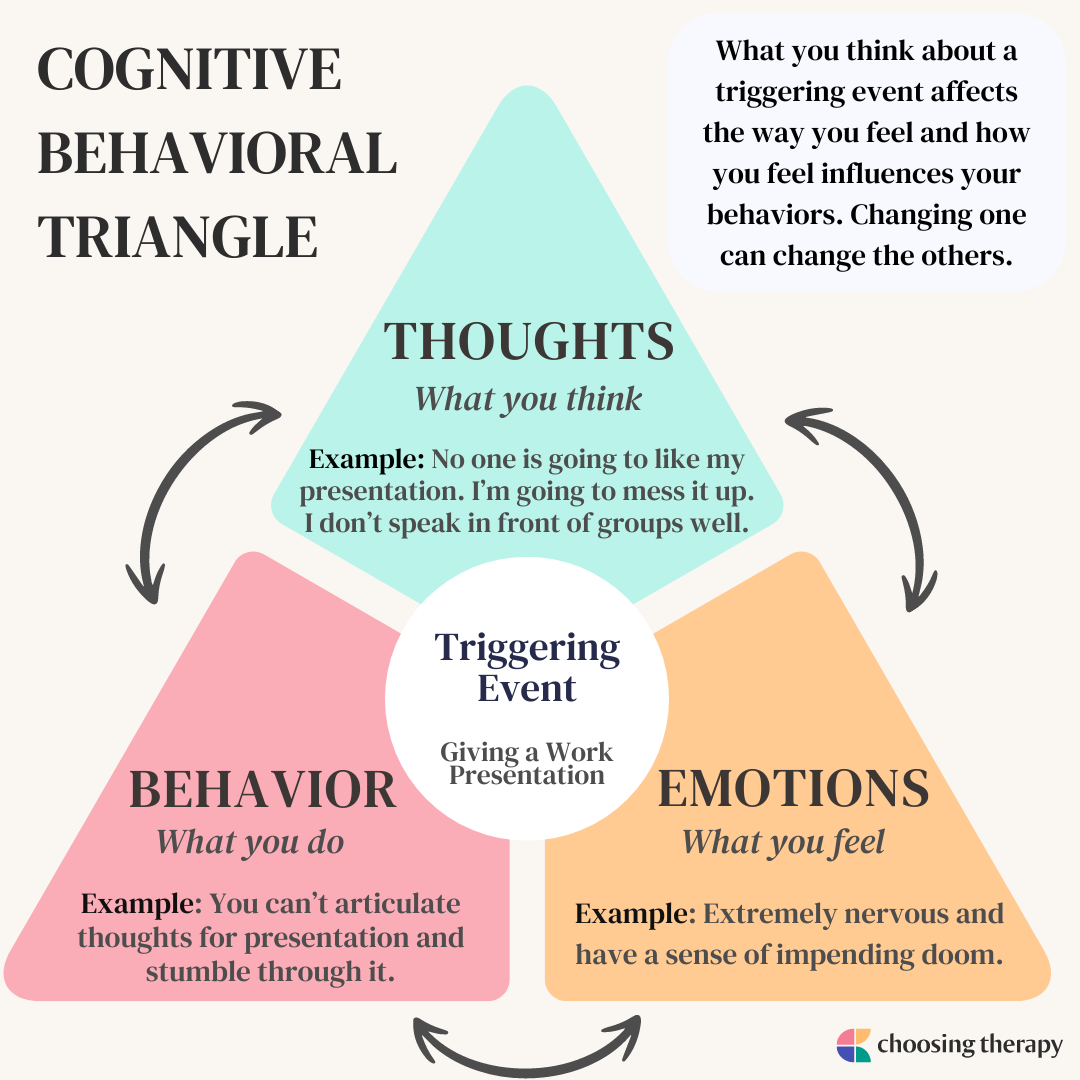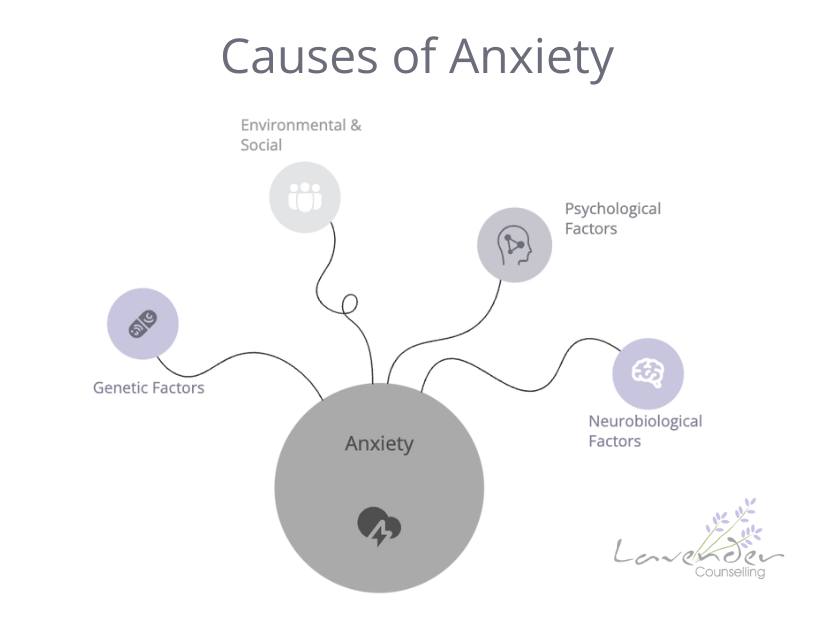Scientifically supported counselling for anxiety with caring guidance
Scientifically supported counselling for anxiety with caring guidance
Blog Article
Discovering Various Strategies in Coaching for Anxiousness Disorder for Lasting Modification
When tackling anxiety disorders, it's important to discover a selection of therapy strategies. Each approach supplies unique insights and tools to help you handle your symptoms properly. You may find that integrating methods can yield the very best results. Nevertheless, comprehending the nuances of these methods is crucial to promoting long lasting adjustment. What if the appropriate mix could release a new level of psychological wellness for you?
Understanding Stress And Anxiety Disorders: A Brief Review
Anxiousness problems, which impact countless people worldwide, can greatly influence every day life. You may experience overwhelming sensations of worry or stress that appear uncontrollable. These feelings can lead to physical signs like an auto racing heart, sweating, or perhaps lightheadedness. Common kinds of anxiety problems consist of generalized stress and anxiety disorder, panic problem, and social stress and anxiety disorder. Each has unique signs, however they all share a tendency to interrupt your regular and relationships.Understanding the source of your anxiousness is important. It could stem from genetics, mind chemistry, or life experiences. Recognizing your triggers can aid you handle your reactions better. It is essential to remember that you're not the only one in this battle. Many individuals encounter similar difficulties, and looking for assistance is a solid step toward sensation much better. By finding out about anxiety disorders, you're already on the path to understanding and handling your problem better.
Cognitive-Behavioral Treatment: Testing Negative Thought Patterns
In Cognitive-Behavioral Treatment, you'll begin by recognizing the adverse thought sets off that add to your anxiousness. You'll work on replacing them with even more positive alternatives when you acknowledge these ideas. With each other, you'll develop effective coping techniques to assist handle your anxiousness in day-to-day scenarios.
Recognizing Adverse Thought Triggers

Acknowledging the certain triggers behind your adverse ideas can be crucial in taking care of anxiousness when you experience minutes of distress. Beginning by paying focus to situations that provoke feelings of worry or anxiety. Is it a jampacked space, an upcoming deadline, or a discussion with specific people? Jot down these instances in a journal. This will aid you determine patterns in your thinking. Also, notification physical feelings that accompany your adverse ideas, like a racing heart or tightness in your chest. By identifying these triggers, you acquire insight right into what's sustaining your anxiety. Recognizing these connections is the initial step in challenging those ideas and eventually regaining control over your psychological actions.
Replacing Ideas With Positives
Challenging unfavorable thought patterns is an essential action in changing your attitude and reducing stress and anxiety. You may often discover on your own entraped in cycles of self-doubt or tragic thinking. As opposed to allowing these ideas determine your feelings, practice replacing them with reasonable choices or favorable affirmations. For example, when you think, "I can not handle this," move it to, "I can take care of challenges one step each time." This easy modification can substantially influence your emotion. On a regular basis recognizing and responding to these adverse thoughts assists create a healthier inner dialogue. Remember, it takes time and effort, but constantly exercising this strategy can bring about long-term adjustment, empowering you to deal with stress and anxiety with renewed confidence and resilience.
Structure Coping Strategies With Each Other
Replacing negative ideas is just the start of managing anxiousness properly. To develop enduring modification, you need to develop coping strategies that encourage you. Cognitive-Behavioral Treatment (CBT) assists you identify and challenge those unhelpful idea patterns. With each other, you and your counselor can explore just how these ideas effect your feelings and behaviors.Start by developing sensible strategies, like journaling or mindfulness workouts, that allow you to challenge stress and anxiety head-on. When you face your fears slowly, you'll learn to react in a different way.

Mindfulness and Acceptance-Based Approaches: Cultivating Present-Moment Understanding
As you navigate the intricacies of anxiety, integrating mindfulness and acceptance-based approaches can significantly improve your capability to grow present-moment recognition. By concentrating on the present moment, you'll discover that you can observe your ideas and feelings without judgment (Counseling services for anxiety). This method aids you acknowledge your anxiousness without feeling bewildered by it.Engaging in mindfulness exercises, such as deep breathing, body scans, or assisted meditations, enables you to ground on your own in your current experience. Acceptance-based methods motivate you to welcome your feelings instead than battle versus them. When you approve your sensations, they shed their power over you.Incorporating these techniques into your daily regimen can transform exactly how you react to anxiety. You'll establish strength and discover to navigate demanding circumstances with better simplicity. Eventually, growing present-moment awareness lays the structure for long-term modification, encouraging you to lead a more satisfying life
Direct Exposure Therapy: Challenging Anxieties Progressively
Direct exposure treatment aids you face your anxieties in a steady method, making it less overwhelming. You'll discover techniques to face anxiety-provoking scenarios detailed, while additionally developing coping methods to handle your reactions. This strategy equips you to take control and minimize stress and anxiety in time.
Gradual Exposure Techniques

When dealing with anxiety, progressively facing your fears can be an effective method to restore control. This technique, recognized as progressive exposure, includes slowly exposing on your own to the circumstances or objects that activate your anxiousness. Begin with less daunting scenarios and progressively work your method approximately even more challenging ones. As an example, if you hesitate of public talking, you might begin by check here talking in front of a mirror, after that proceed to sharing thoughts with a close friend, and ultimately deal with a tiny group. Each step helps desensitize you to the anxiety, building your confidence gradually. Keep in mind, it's essential to speed yourself and commemorate tiny victories as you move through this procedure, strengthening your capability to handle stress and anxiety effectively.
Structure Coping Methods
Structure effective coping approaches is necessary for handling stress and anxiety, particularly as you confront your anxieties slowly - Counseling services for anxiety. One powerful approach is direct exposure treatment, where you begin by encountering your anxieties in a controlled manner. Begin with less daunting circumstances and slowly work your way up to even more challenging scenarios. This steady direct exposure aids desensitize you to anxiousness triggers, making them less overwhelming.Incorporate leisure strategies, such as deep breathing or mindfulness, to relax your mind throughout exposure. Track your development, celebrating small victories in the process to enhance your self-confidence. Remember, it's fine to take your time; the goal isn't perfection yet constant enhancement. By building these strategies, you'll encourage on your own to navigate stress and anxiety and accept life more fully
Psychodynamic Therapy: Revealing Origin of Anxiety
Psychodynamic therapy explores the unconscious mind, exposing the root causes of your anxiousness. By analyzing your ideas, feelings, and previous experiences, this method helps you reveal underlying disputes and unsolved concerns that might add to your current stress and anxiety. You'll deal with a therapist to examine youth experiences, relationships, and psychological patterns that shape your feedbacks today.As you gain understanding into these much deeper layers of your subconscious, you'll start to identify exactly how past events influence your existing behavior. This understanding can bring about catharsis, enabling you to refine emotions you might have suppressed.Through the therapeutic relationship, you can likewise identify defense reaction that may have established with time, providing a more clear path to transform. Inevitably, psychodynamic therapy furnishes you with the devices to resolve your stress and anxiety at its core, advertising lasting makeover in your emotional wellness.
Alternative and integrative Strategies: Combining Methods for Greater Efficiency
Integrating various therapeutic methods can boost your trip toward taking care of anxiety extra effectively. By integrating elements from cognitive-behavioral therapy, mindfulness methods, and all natural approaches, you can create a customized technique that resolves your one-of-a-kind demands. You might use cognitive-behavioral methods to test adverse idea patterns while integrating mindfulness exercises to ground on your own in the present moment.Additionally, exploring holistic practices such as yoga exercise or reflection can advertise leisure and reduce anxiousness signs and symptoms. This mix enables you to establish better self-awareness and resilience.Experimenting with these varied techniques can help you discover what reverberates most with you. Remember, it's concerning locating a harmony that works, instead of adhering to a solitary strategy. This integrative approach not just provides immediate alleviation yet additionally promotes long-lasting skills for taking care of stress and anxiety, equipping you to reclaim control over your life.
The Role of Support Systems: Structure Resilience Via Link
While it could seem that taking care of stress and anxiety is a singular trip, having a strong support group can play an important duty in your strength. Surrounding on your own with compassionate pals, family, or support system develops a risk-free room where you can freely share your experiences and feelings. You advise on your own that you're not alone in this struggle.These connections supply motivation and can give practical coping methods that have functioned for others when you connect with others. It's likewise an opportunity to acquire point of view; buddies can assist you see scenarios differently, reducing feelings of isolation.Moreover, emotional assistance cultivates a sense of belonging, which can significantly relieve anxiety signs. By leaning on your support group, you can construct strength and deal with obstacles better. Keep in mind, connecting for assistance signifies toughness, and it can make all the distinction in your trip towards managing anxiety.
Often Asked Concerns
What Are the Typical Signs of Anxiety Conditions?
You may experience uneasyness, exhaustion, difficulty concentrating, irritability, muscle tension, and sleep disruptions. Physical signs and symptoms can consist of quick heart beat, sweating, and shivering. Acknowledging these indicators early can help you look for appropriate assistance and therapy.
The Length Of Time Does Treatment Generally Last for Stress And Anxiety Conditions?
Therapy for anxiety disorders typically lasts anywhere from a few weeks to numerous months. It truly depends upon your individual needs, progress, and the strategies your specialist utilizes to help you manage your anxiousness successfully.
Can Medicine Be Used Alongside Treatment for Anxiety?
Yes, drug can certainly be used alongside treatment for anxiety. Integrating both methods frequently enhances therapy efficiency, aiding you take care of signs while exploring underlying concerns with counseling (Counseling services for anxiety). Constantly consult your doctor for customized advice
Exist Self-Help Techniques for Handling Anxiousness?
Yes, there are numerous self-help techniques for taking care of anxiety. You can exercise mindfulness, participate in regular exercise, maintain a well balanced diet, develop a routine, and use deep breathing techniques to aid decrease anxiousness signs properly.
Exactly how Do I Know if I Need Specialist Assistance for Anxiousness?

Report this page